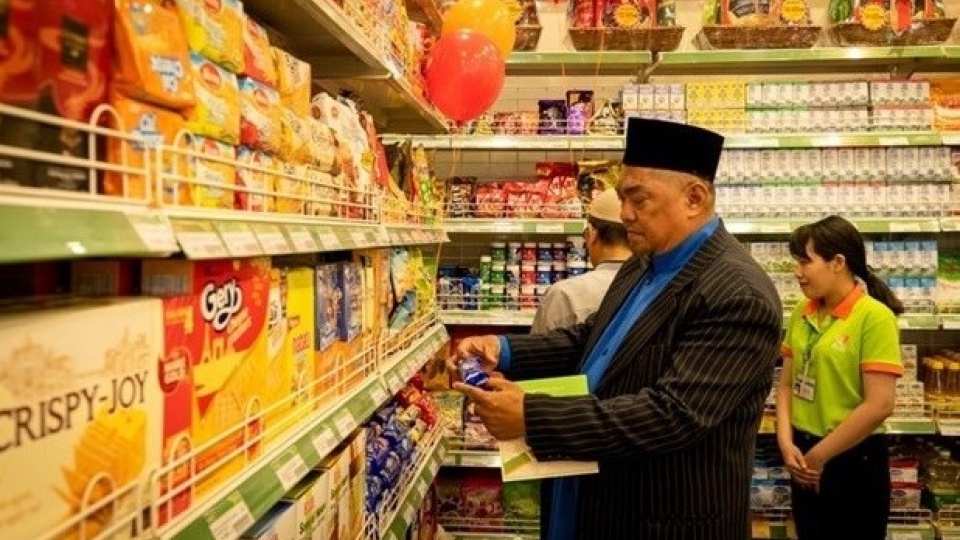Vietnam studies nuances for successful Halal tourism
Halal tourism presents a promising opportunity driven by rising global Muslim travel demand, and while Vietnam is beginning to tap into this market, it still faces challenges in meeting its unique cultural and religious needs.

With over 1.9 billion Muslims worldwide, Halal tourism is booming. The global Halal tourism market was valued at around US$266 billion in 2023. It is projected to hit US$276 billion in 2024 and soar to US$350 billion by 2030.
Dr. Trinh Thi Thu Ha, rector of the Hanoi College of Commerce and Tourism, noted that Muslim tourism has become a global trend and is playing an increasingly vital role in many countries' tourism sectors.
Recognising the vast potential of this market, the Prime Minister approved a national strategy on February 14, 2023, titled “Enhancing international cooperation to develop Vietnam’s Halal industry by 2030.” In 2024, the country launched the Vietnam Halal Certification Authority (HALCERT) and introduced national standards for Halal-related products and services. Vietnam’s tourism authorities have also ramped up promotional campaigns to attract Muslim travelers.
Despite these efforts, Vietnam still lacks sufficient infrastructure and services tailored to Muslim visitors, making it less appealing to this demographic. Ramlan Osman, Director of HALCERT, emphasised that Muslim-friendly tourism comes with specific criteria. They include Halal-certified food, prayer facilities, services tailored to Ramadan, privacy in entertainment such as gender-separated areas, and family-oriented tour options.
He pointed out that one of the biggest challenges for Muslim travelers is food, saying that Vietnamese food is delicious, but if it does not meet Halal standards, they can’t eat it.
Tapping into the Halal tourism market isn’t just about following a trend – it’s a sustainable growth strategy that opens doors to the wider Muslim world. But success begins with understanding the culture.
Building a complete Halal tourism ecosystem
Palestinian Ambassador to Vietnam Saadi Salama highlighted the importance of cultural awareness. Knowing how to greet or what kind of gifts are appropriate for Muslims helps build stronger, more respectful relationships, he noted.
His view was echoed by Azerbaijani Ambassador to Vietnam Shovgi Kamal Oglu Mehdizade, who said that Muslims consider Islam not only as a religion but also as a way of communication and behaviour. Muslim tourists expect to be respected, welcomed and have their needs for food, prayer and religious activities met when they come to Vietnam.
When their needs for food, prayer, and religious observance are met, they respond with warmth and support for the local community tenfold, he added.
To develop tourism and welcome Muslim tourists, Vietnam needs a Halal ecosystem including products, services, infrastructure, human resources and support policies for Halal tourism.
Hanoi leads the way
According to Director of the Hanoi Department of Tourism Dang Huong Giang, the city is developing a strategic roadmap to turn the capital into a Muslim-friendly destination. By 2030, Hanoi aims to establish a comprehensive Halal tourism ecosystem, starting with designated Muslim-friendly zones in central districts.
Targets include having at least 10 to 20 Halal-certified hotels and ensuring that 30% of restaurants in central areas can serve Halal food. The city is also investing in training programmes for tourism businesses, in partnership with international organisations and academic institutions, to build a workforce equipped to serve Muslim travelers.
The Hanoi College of Commerce and Tourism recently launched the Halal Training Centre which offers both basic and advanced Halal courses and promotes a curriculum aligned with national standard TCVN 14230:2024 on Muslim-friendly tourism. The school has also signed strategic cooperation agreements with local and international partners to offer hands-on training, develop Halal-standard products and services, and jointly promote Vietnamese tourism to the global Muslim community.



